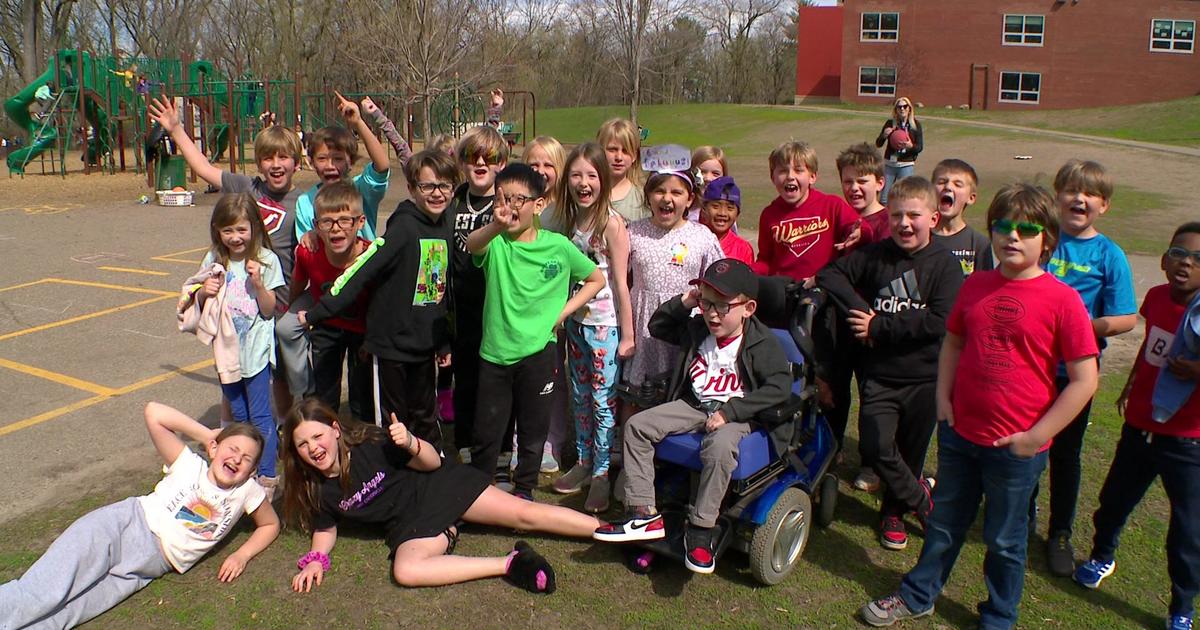Robin Williams' Widow Keynotes Brain Research Fundraiser
MINNEAPOLIS (WCCO) -- He was one of the funniest comedians Americans have ever seen. The late Robin Williams had a stage presence that seemed to be always running at full throttle.
That was until Williams lost his battle to an incurable brain disease few people have even heard of.
In August 2014, the 63-year-old Williams took his own life after a difficult struggle with Lewy Body disorder -- a terrifying form of dementia.
On Tuesday, Williams' widow, Susan Schneider-Williams, arrived in the Twin Cities to help raise money and awareness to fund badly needed brain research. She will be the keynote speaker at the annual "Standing Strong: An Evening Benefiting Brain Disease Research" on Wednesday at U.S. Bank Stadium in Minneapolis.
From stage and film to his unforgettable comic voices, Robin Williams couldn't help but make America smile and laugh. That was up until the dark day in 2014 when brain disease stole his comedic brilliance.
"It's one of the most terrifying forms of dementia, if not the most terrifying form," Schneider-Williams said.
Shortly before he died, Williams was diagnosed with Parkinson's disease, but an autopsy later showed it was actually Lewy Body Dementia that had so widely degenerated his brain's neurons with abnormal proteins.
According to his wife, Williams expressed frustration with changes in his ability to think clearly some 10 months before his death.
"He expressed a very strong spike, a very prolonged level of fear and anxiety," Schneider-Williams said. "This is a hallmark of LBD."
Schneider-Williams is optimistic that brain injury and disease is now gaining mass interest, and that is something former Gopher and NFL football player Ben Utecht is helping spread.
Utecht was forced out of football in 2009 after suffering his fifth documented concussion. He is now a leading advocate for greater understanding and research into the debilitating effects of traumatic brain injury (TBI) -- particularly the links between concussion and later dementia and disease.
He said, in speaking with parents of young athletes, the questions regarding TBI and sports constantly comes up.
"It's really one of the No. 1 concerns on their minds," he said. "'When should I allow my child to enter into a contact sport, because we just don't know what the connections are?'"
Schneider-Williams wrote a heartfelt piece for Neurology magazine detailing her husband's struggle. In the article, she exposes the many symptoms and fears the couple felt along the way. She now hopes that by exposing their struggles and speaking so openly she can help other families struggling with the disease to replace stigma with understanding, while at the same time gain broader support for greater brain research.
"Watching what he went through -- what we went through -- it's hard to imagine there are so many suffering that right now," she said. "It's my duty, that's it."
Schneider-Williams is the keynote speaker at Wednesday night's fundraiser for the American Brain Foundation at U.S. Bank Stadium.
Tickets for "Standing Strong -- An Evening Benefiting Brain Disease Research" are still available.



